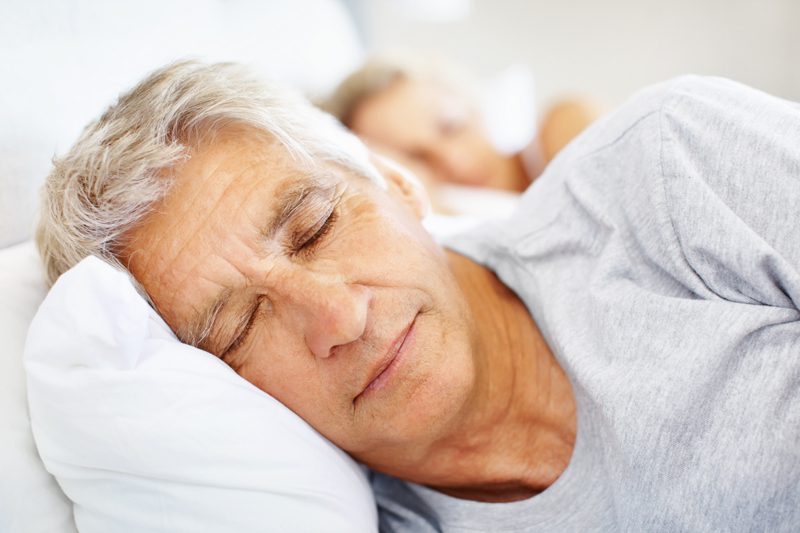Men’s prostate glands start growing with age. As the prostate enlarges, it can press on the urethra and prevent the bladder from emptying properly. BPH (Benign Prostatic Hyperplasia) usually starts after forty and affects nearly all men at some point in their lives. However, the degree of prostate enlargement and the severity of the symptoms vary.
Some men will experience little to no symptoms even if their prostate has grown larger, while for others, BPH becomes a problem over time. These men will begin to experience different symptoms caused by their BPH, including nocturia.
Nocturia is a condition in which you frequently wake up during the night to pass urine.
Although this is seemingly a minor issue, it is not to be taken lightly. Waking up several times a night to urinate disrupts sleep and creates additional health concerns. Moreover, nocturia can be connected to other underlying health problems that can be serious, including kidney and cardiovascular disease.
If you are experiencing nocturnal urinary frequency, it is important to consult your doctor.
Nocturia can be caused by a panoply of health conditions or bad habits. If you have an enlarged prostate, chances are you are experiencing nocturia due to your BPH. However, if the symptoms are new or have worsened recently, it is important to contact your medical practitioner.
In many cases, a few lifestyle changes can significantly improve or even eliminate constant nighttime trips to the bathroom.
If you are experiencing nocturia, here are 6 questions you should ask yourself:

In today’s sedentary and anxiety-provoking society, it is becoming more and more important to adopt a healthy and active lifestyle. Sitting all day working in front of a computer with your legs bent could certainly cause fluid retention and, consequently, nocturia.
Swollen ankles in the evening may be indicative of edema (fluid retention). Walking and getting your legs moving during the day will improve circulation and therefore reduce fluid retention.
Paradoxically, rest is also a way to reduce fluid retention. If you frequently have swollen ankles, sit or lie down for at least an hour a day with your legs raised at or above the level of your heart.
Note that edema can be a symptom of life-threatening conditions. If simple lifestyle changes do not improve fluid retention in your ankles, call your doctor.
Your fluid intake has an immediate impact on your bladder and, therefore, your trips to the bathroom. To keep your bladder as healthy as possible, it is important to focus on the quantity and quality of your fluid intake.
If you are experiencing nocturia, excessive fluid intake, especially before bedtime, needs to be avoided.On the other hand, cutting fluid intake can also irritate your bladder and, therefore, increase your trips to the bathroom.
Cutting down on your overall daily fluid intake is never a good idea as this can lead to other health issues, including dehydration, constipation and an increased risk of UTIs and kidney infections.
SOLUTION:
Try drinking plenty of fluids every day (six to eight cups is the general rule), but drink in small yet constant amounts throughout the day, reducing your intake only one to two hours before bedtime.
Not many associate nocturia with the types of fluids they are consuming. However, the truth is that what you drink can and will irritate the bladder and, as a consequence, worsen nocturia.
Irritants include:
SOLUTION:
Reduce these types of drinks, especially later in the day, to help lower your nightly trips to the bathroom.
Your dietary choices can definitely affect your bladder. We have all experienced the effect some foods such as beets or asparagus can have on the colour or smell of urine.
Likewise, some foods will tend to irritate your bladder, causing urgency or the constant feeling of having to go, especially late at night.
The most common dietary irritants include:
Most people are not sensitive to all these products and some will find that foods other than those listed affect their bladder.
SOLUTION:
Keep a dietary journal to determine which foods worsen nocturia for you. Eventually, you will know which foods to avoid in order to keep your nighttime trips to the bathroom at a minimum.
Recent studies have shown that “nocturia is significantly associated with testosterone deficiency”
Moreover, as you age, you may start producing less antidiuretic hormone (ADH). This hormone is a brain chemical that signals the kidneys to reduce urine production at night.
Note that some medications contain an agent that increases the rate of urine formation (diuretics).
SOLUTION:
Speak with your medical provider if you have concerns about nocturia to determine if it is caused by your hormone levels or the medications you are taking.
Always consult your medical provider before stopping any medication that can be causing nocturia.

Many people think they wake up because they need to use the bathroom, but it’s actually the other way around: they use the bathroom because something woke them up; it’s because they are awake that they realize that they have to urinate.
SOLUTION: Practicing good sleep hygiene will help you determine whether you are experiencing nocturia or are simply not sleeping well.
So ensure a good sleep hygiene:
If you are suddenly experiencing nocturia (waking up to urinate more than two times during the night), you should definitely consult your doctor to ensure the frequent bathroom visits are not caused by a pressing medical condition such as a neurological disorder, cardiovascular or kidney disease, an infection, diabetes or sleep apnea.
Your doctor will also be able to determine if the onset of nocturia is caused by hormonal changes.
If you have BPH, nocturia might be a sign that your condition has worsened and you may now require medical treatment.
If nocturia is not caused by a connected medical condition, simple lifestyle changes such as adopting good sleep hygiene, making the right dietary choices and having healthy and active habits, will help relieve nocturnal urinary frequency.
6900 Boulevard Décarie, Suite M270
Montréal, QC H3X 2T8
1100 Rue du Lux, Bureau 520
Brossard, Quebec J4Y 0E2
© 2023 Sanomed, All rights reserved. Website by Lifter
Request A Consultation Appointment
Please complete this appointment request form and we will call you back to review how to prepare, and to confirm your appointment date and time. Thanks.